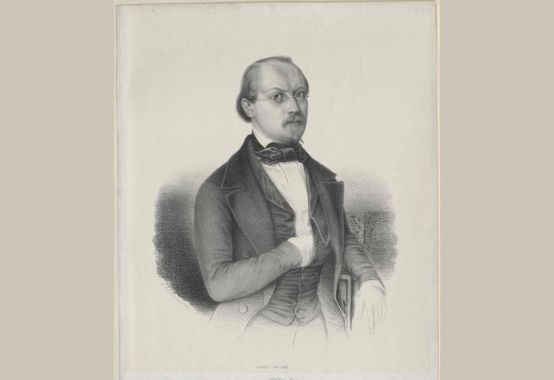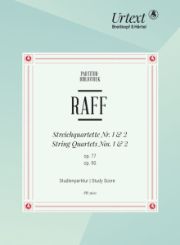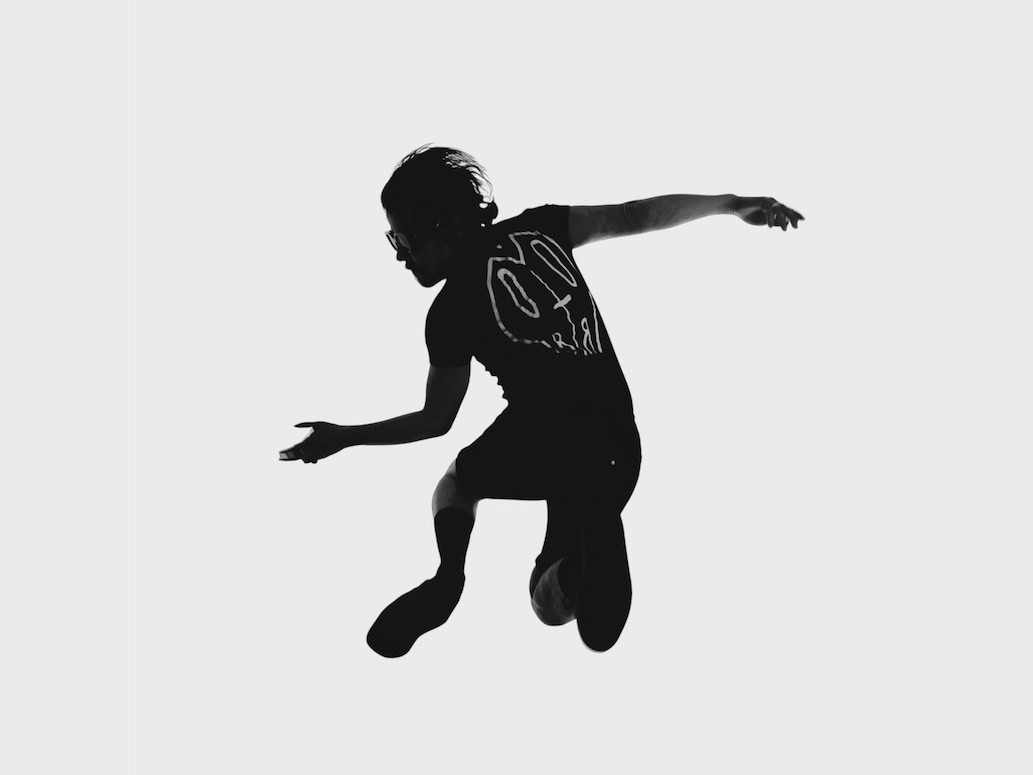Overshadowed jewels
The first two of Joachim Raff's eight string quartets have been reissued in exemplary fashion.

Breitkopf & Härtel, in collaboration with the Joachim Raff Archive in Lachen, Switzerland, is to be thanked for the new edition of the first two string quartets by Joachim Raff in parts and score, which were composed in 1855 and 1858-59 respectively. With considerable effort and a meticulously precise critical report on the source situation, the respective editorial decisions and a detailed, exciting preface, they deserve great respect - especially from a musicological point of view. Joachim Raff, whom Joseph Hellmesberger considered to be overly well-meaning in the rank of Schumann and Beethoven, completed a total of eight quartets in the years after Schumann's death, which were rare in terms of high-quality string quartets. None of them found their way into the classical canon of ensembles of importance in the 20th and 21st centuries, just like Louis Spohr's 36 quartets.
Raff's reputation soon faded with his death in 1882. In contrast to some other, less comprehensible loss of importance of composers, there are good reasons for this in the case of Raff himself and his work. Current, commendable performances make this clear - despite the renaissance of his name. He will remain a controversial composer, as he was almost throughout his lifetime, who produced much, but also much that was average. His ambition to write string quartets was based on practical considerations, as an increasingly professional public quartet scene was establishing itself at the time the first was written, including directly in Raff's circle. Nevertheless, he struggled for a long time to find a response, both from the performers and the public.
If one devotes oneself to the first two quartets, one is repeatedly captivated by brilliant melodic ideas, surprisingly modern effects (longer ponticello and flageolet passages), echoes of folk songs, powerful, thoroughly quartet-like elements that prove Raff's outstanding musical talent. What is fascinating in parts (for example in the Scherzo of Opus 77), Raff unfortunately flattens out again and again with extended, one might even say meaningless episodes that overshadow the absolutely brilliant jewels of his artistry. It would have taken a greater, more formally coherent mastery to prevent these weaknesses, or an uncompromising concentration on the essentials.
It is the crux of artistic creation that true greatness only emerges when the highest quality is predominant and not just intermittent. Some of Raff's contemporaries were affected by this problem of the second or third rank of music, precisely because they had to free themselves from the clutches of Beethoven's legacy without appearing epigonal or completely unhinging the traditions. Most of them sought ways out of this dilemma on their own, although they could have learned a lot from each other.
Whether Raff's quartets will now be performed more with this commendable edition remains to be seen, given that the first edition is available online. There are still countless works that have not been published, for example the highly noteworthy quartets by Carl Czerny that were composed up to the mid-1850s.
Joachim Raff: String Quartets No. 1 (op. 77) and 2 (op. 90), edited by Stefan König and Severin Kolb; Parts No. 1: EB 8939, € 41.90; Parts No. 2: EB 8940, € 41.90; Study score 1+2: PB 5622, € 39.90; Breitkopf & Härtel, Wiesbaden









